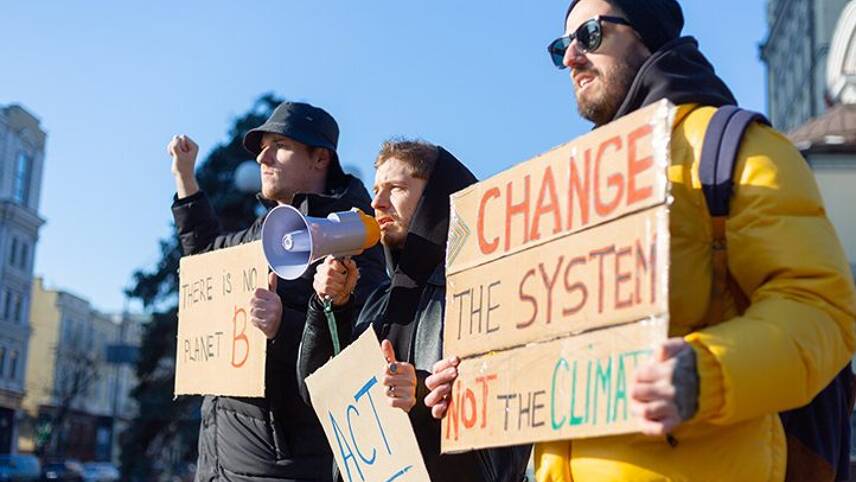Register for free and continue reading
Join our growing army of changemakers and get unlimited access to our premium content

This call for action isn’t new but the precedents surrounding it are. Used correctly, they could make 2022 the year that systems really started to shift.
Eight years to 2030 – that’s 96 months or 2,920 days. However you cut it, every moment matters. We know change takes time and difficult decisions must be made now if there is a chance of creating a sustainable way of living for all of us.
Urgency unleashed incredible results through the pandemic; now we need to enable the same boundary-breaking spirit so that long-established practices are challenged, reworked, or replaced with ones that are fit for the future.
If stakeholders still need convincing why they need to act now, breaking down 2030 from a number in the future to the more tangible months to reach it shows that time is not on our side.
Sustainability is a matter of life and death – five million deaths a year linked to abnormal temperatures, the inequalities unveiled by Covid deaths, and powerful voices at COP26 showing the difference that 1.5 and 2 degrees warming will make to the survival of people and species around the world. This isn’t a nice to do, it’s about survival.
If that isn’t enough to convince decision-makers and business leaders, then perhaps the legal realities will.
Climate litigation nearly doubled from 884 cases in 24 countries in 2017 to 1,550 in 38 countries in 2020. A survey of legal academics recently agreed that the law can influence climate change not only in the near future but into the long-term future – granting standing to humans living up to 100 years from now.
Decisions made – and those avoided – will be judged.
Making it personal – change comes from an emotional connection as well as a rational case; first-person stories, activist movements, decision-makers speaking uncomfortable truths.
If 2021 was about joining coalitions then 2022 needs individuals to speak out about what they are doing and why. Leaders don’t have to be experts or sit at the top of an organisation – but they must have both genuine intent and ongoing evidence of action.
People are the key to a successful transition and those with lived experience are powerful allies. We need to hear more voices and start to normalise change.
Trusting the numbers – targets have been set by businesses and governments alike, and performance is going to be increasingly tracked and scrutinised.
Emmanuel Faber has been confirmed as Chair of the new International Sustainability Standards Board with the aim of creating a global baseline of disclosure requirements for investors. COP27 is requesting countries bring back stronger Nationally Defined Contributions after 12 months rather than another five years. At home, personal behaviours from recycling volumes to water and energy meters are linked to costs, with more to come.
This is not just about having the data, it’s about ensuring it is reported openly and can be trusted. Observers including employees, customers, investors and NGOs will be quick to expose the obscure or confusing. Everyone’s an activist now.
The case is clear. Expectations have shifted. And the mechanisms for understanding what’s really happening inside organisations are becoming more robust. This can’t make the change process itself easier, but it can help decision making and create a licence to act.
Let’s use the moment and make 2022 a year of radical progress.



Please login or Register to leave a comment.